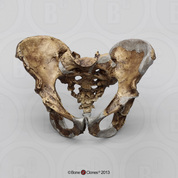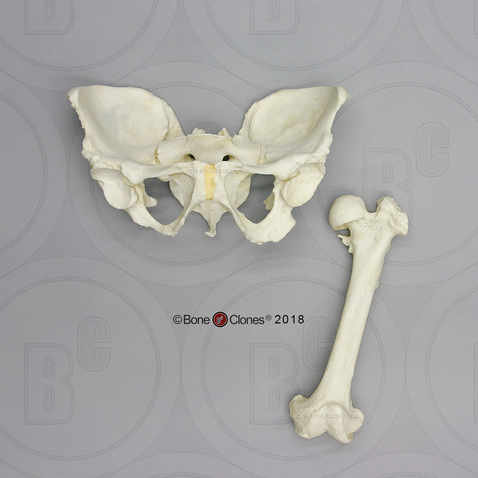tas8831
Well-Known Member
I posted this as part of another thread last year, and the year before that, and I had no takers. 3rd time a charm?
Creationist electrical engineer Walter ReMine wrote:
Clearly, ReMine thinks that 500,000 beneficial mutations is just not enough to get a human from an apelike ancestor.
He never says why he thinks this, but it has become a mantra among creationists that even if evolution were true, there are not enough beneficial mutations to explain us evolving from an apelike ancestor.
So... the challenge -
How many mutations would it have taken to get a human pelvis (left) from an Australopithecine pelvis (right)?



Show your work please.
I was once told by a creationist computer tech that it must be 1 million! He could not explain why, he just "knew" it.
And yet... We actually know that a single mutation can produce this kind of pelvis:

from normal human phenotype parents... so, I'm thinking a million is maybe ~999,990 too many..
Creationist electrical engineer Walter ReMine wrote:
Take an ape-like creature from 10 million years ago, substitute a maximum of 500,000 selectively
significant nucleotides and you would have a poet philosopher?... Is this enough to account for the significantly improved skulls, jaws, teeth, feet, speech, upright posture, abstract thought, and appreciation of music, to name just a few?
- The Biotic Message, p. 209
significant nucleotides and you would have a poet philosopher?... Is this enough to account for the significantly improved skulls, jaws, teeth, feet, speech, upright posture, abstract thought, and appreciation of music, to name just a few?
- The Biotic Message, p. 209
Clearly, ReMine thinks that 500,000 beneficial mutations is just not enough to get a human from an apelike ancestor.
He never says why he thinks this, but it has become a mantra among creationists that even if evolution were true, there are not enough beneficial mutations to explain us evolving from an apelike ancestor.
So... the challenge -
How many mutations would it have taken to get a human pelvis (left) from an Australopithecine pelvis (right)?



Show your work please.
I was once told by a creationist computer tech that it must be 1 million! He could not explain why, he just "knew" it.
And yet... We actually know that a single mutation can produce this kind of pelvis:

from normal human phenotype parents... so, I'm thinking a million is maybe ~999,990 too many..
Last edited:
